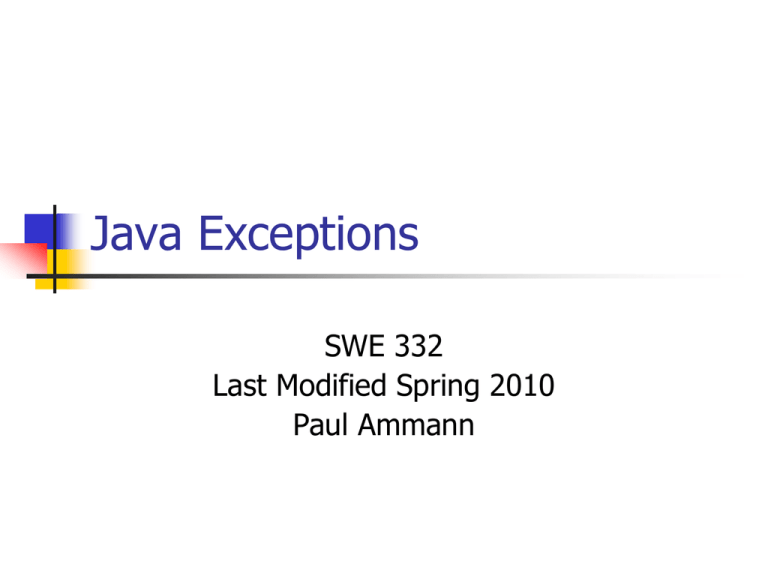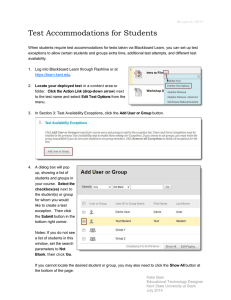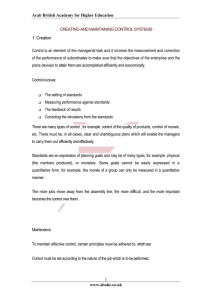Java Slides
advertisement

Java Exceptions
SWE 332
Last Modified Spring 2010
Paul Ammann
Rationale for Exceptions
Preconditions document undefined behavior
Undefined behavior Partial specification
In any implementation, something happens
Should clients rely on undocumented behavior?
Bottom line:
Preconditions are usually undesirable
What happens in next release?
But sometimes unavoidable…
Exception handling:
Transform preconditions to defined behavior
One of several possible mechanisms…
2
Transforming a Precondition to
an Exceptional Postcondition
Key: Postcondition defines behavior for inputs excluded by precondition
public double sqrt (double x)
// precondition: x >= 0
// postcondition: …
public double sqrt (double x)
// precondition:
// postcondition: If x < 0 throw IllegalArgumentException
// else …
public double sqrt (double x)
/**
* @param x the square of the intended result
* @return approximate square root of x…
* @throws IllegalArgumentException if x < 0
*/
3
Java Exception Mechanism
Throwable
Error
Exception
…
RuntimeException
Checked Exceptions
…
Unchecked Exceptions
Ammann 2008
4
Exceptions
Unchecked: client does not need to
explicitly write special code
Checked: client has to pay attention to
these. Must write special code blocks
Many different types of exceptions are
provided.
You can provide your own.
Ammann 2008
5
Custom Exceptions
public MyFavoriteException extends Exception {
public MyFavoriteException() {
super();
}
public MyFavoriteException(String s) {super(s);}
can add more
like state at the time of throwing the exception
methods that let the invalid state be printed and other useful
information
Ammann 2008
6
Throwing Exceptions
Explicit throws
throw new NullPointerException(“”);
throw new NPE(“class, method”);
System throws
String [ ] a = {“1”,”2”,”3”,”4”,”5”};
print(a[-1]);
System throws IndexOutOfBoundsException
Passing through (goes up the call chain)
keeps going till it finds a handler
Ammann 2008
7
Catching Exceptions
In a special code block called try-block
try{
}catch(ExceptionType instance){
}
Ammann 2008
8
Catching Exceptions
Can have multiple catch blocks, with
different execution logic for different
exceptions raised
Class hierarchy matters in catching!
If you catch an exception of type
Exception, all subtypes are also caught!
catching Exception is dangerous! WHY?
Ammann 2008
9
Remember!
try-catch block should be as short as
possible.
catch the right type of exception: to be
sure of what’s the right thing to do
Ammann 2008
10


